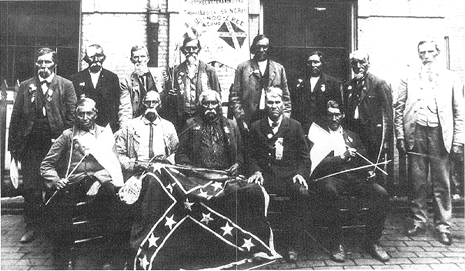
( – promoted by navajo)
The struggle of African-Americans to obtain the right to vote has been well documented, but the struggle for American Indian voting rights is less well-known and more complex. The voting rights battles fought by the Eastern Cherokee in North Carolina provide one aspect of this battle.
General Background:
Toward the end of the nineteenth century the United States government decided that American Indians, like immigrants from other countries, should be fully assimilated into American society. However, a series of court rulings and legal opinions declared that not only were American Indians not citizens, they could not become citizens without Congressional action. In 1887 Congress passed the Dawes Act which allowed Indians who had taken allotments to become citizens. Following World War I, Congress passed an act making all Indians who had served in the military during the war citizens. Finally, in 1924 Congress passed legislation declaring all Indians to be citizens.
The Eastern Cherokee:
In 1920, a large number of Eastern Cherokee – including Cherokee women – registered to vote. As a result of Cherokee participation in the election, Republicans won almost every office in Jackson County by narrow margins. The Democrats protested the election results claiming that the Cherokee were not eligible to vote. As a result, Cherokee votes were thrown out on the basis that the Cherokee were non-citizen wards of the United States.
Two days after passing the Indian Citizenship Act in 1924, Congress passed a bill to allot the Eastern Cherokee in North Carolina. The bill, written prior to the passage of the Citizenship Act, provided that the Eastern Cherokee would become citizens only after receiving and registering their allotments. The State Attorney General took the position that the Eastern Cherokee were, therefore, not citizens because this bill superseded the Indian Citizenship Act. The Bureau of Indian Affairs, on the other hand, took the position that they were citizens. Local registrars assumed that the Cherokee were not citizens and did not allow them to register to vote.
The following year, the federal government assumed trusteeship for Eastern Cherokee land and informed county officials that they could not tax Indian property. This was the first time since the Eastern Cherokee acquired these lands in the 19th century that they had not had to pay property taxes. For those who felt that only taxpayers should be allowed to vote, this provided another reason to prohibit Indians from voting.
Congress passed an act to clear up the confusion of the citizenship of the Eastern Cherokee in 1929. The act reaffirmed Eastern Cherokee citizenship under the Indian Citizen Act of 1924 and declared that this citizenship had not been repealed or abridged with the passage of the Eastern Cherokee Allotment Act two days later. Local officials in North Carolina, however, ignored Congress and continued to deny the Eastern Cherokee the right to vote.
The following year, Eastern Cherokee leader Henry M. Owl was denied the right to register to vote. The registrar refused to register Indians because they were not citizens. In response, Congress passed yet another act once again reaffirming citizenship for the Eastern Cherokee. Local newspapers protested Congressional interference with local affairs. Despite the explicit and repeated directives from Congress, county registrars continued to deny Cherokees the right to vote.
A report by the Solicitor General in 1937 found that North Carolina denied Indians the right to vote claiming that Indians were illiterate. The superintendent of the Cherokee Agency reported:
“We have had Indian graduates of Carlisle, Haskell, and other schools in stances much better educated than the registrar himself, turned down because they did not read or write to his satisfaction.”
In 1940, Congress passed the Nationality Act which again conferred citizenship on American Indians and required that Indian men register for the draft. In response, the Eastern Cherokee tribal council drafted a resolution which argued that the fact that the Eastern Cherokee were denied the right to vote in North Carolina also denied them fair treatment and equal rights by county draft boards. The council asserted that
“any organization or group that would deprive a people of as sacred a right as the right of suffrage would not hesitate to deprive them of other constitutional rights including the three inalienable rights – life, liberty, and the pursuit of happiness, if the opportunity to do so presents itself.”
Following World War II, county registrars in North Carolina refused to register Eastern Cherokee war veterans to vote. The Cherokee appealed the decisions to the governor and attorney general, but nothing was done.
After lawsuits by Indian veterans in Arizona and New Mexico declared that Indians were citizens and had the right to vote, resistance to Indian voting in North Carolina was reduced and the Eastern Cherokee began to participate in American democracy.
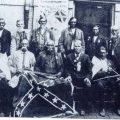
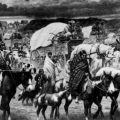
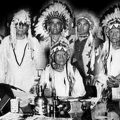
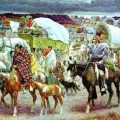
Leave a Reply